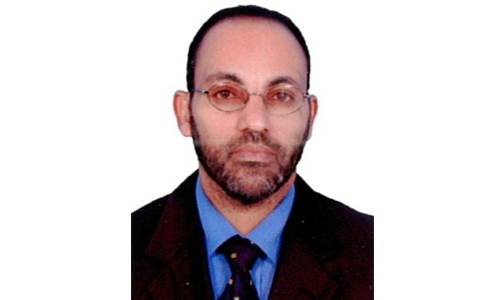Observations on the UPR report
Last week, the 27th Session of the United Nations Universal Periodic Review (UPR) took place in Geneva, where human rights concerns in Bahrain came under close scrutiny by a panel of countries.
The handling of human rights issues in Bahrain was criticized most of which seem to have resulted due to little or no understanding of the realities on the ground. The session put forward 176 recommendations that Bahrain needs to consider if its human rights situation is to conform to international standard.
Without exaggeration, Bahrain has addressed the alleged human rights abuses and took steps to correct them long time before the UPR panelists recommended. In fact, the failure of the UPR working group to consider the improvements and progresses the Kingdom has made was the main reason for the long list of recommendations suggested for Bahrain.
In the context of the wider Middle East and the GCC countries, Bahrain has excelled most of them when it comes to rendering human rights freedoms to its citizens.
In which country do you find an Ombudsman office, Special Investigative Unit and Detention committee that oversees prisoner’s affairs? Which country provides training to its police force in handling crowd control and human rights? Which country has shown great strides when it comes to empowering women?
Sectarian based conflicts are common in the wider Middle East, where the cocktail of politics and sectarianism further throws the countries into chaos. So which country made amendments to its laws in such a way that politics be separated from religion?
It is not surprising to hear from the Honduran representative, for instance, who said that “Bahrain has to end religious discrimination”. There is no religious discrimination in Bahrain. In fact, Bahrain is a place of religious tolerance and co-existence.
Government records show that Bahrain is home to 110 churches, temples and synagugues.440 Sunni mosques, 81 Islamic centres, 608 Shiite mosques and 618 Shiite community centres. How many countries in the Middle East have such a mix of religious communities and yet live in mutual peace?
In any street confrontation between police and demonstrators, we expect the number of protesters killed and wounded to be higher than those of the security forces. In Bahrain the opposite is happening: the number of policemen killed and wounded is about five times higher than the protesters, indicating that the protests were no more peaceful. The report has failed to mention this reality.
The throwing of Molotov cocktails has become something of the past. New devices where remote controlled explosives designed and formulated in foreign countries have been continuously used by protesters.
Again no mention was made on this development. Calling these protesters peaceful activists and democracy defenders is nothing but a morass of lies concocted by half backed politicians.
Furthermore, the educational institutes in the kingdom have witnessed continuous attacks. To date, around 530 schools were firebombed. The terrorist acts have forced students to boycott classes and thus deny their rights to learn. No one seems to mention this incident during the UPR session.
Irrespective of the above shortcomings of the UPR working group, however, the Bahraini government has shown its readiness to implement all the recommendation and expressed it willingness to cooperate with the Office of the High Commissioner for Human Rights.
Two points need to be considered when discussing human rights concerns in Bahrain. The Kingdom’s efforts to address and solve the alleged human rights issues and the progresses it has shown on one hand and the fact that it is facing terrorism inspired by foreign agents on the other should be taken into account when recommending improvements in its handling of human rights issues.
Related Posts

